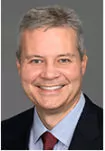Few motion picture sequels are better than the original. The same can be said about Kedrowski v. Lycoming Engines. This saga began when the Minnesota Court of Appeals affirmed the trial court's grant of judgment as a matter of law to Lycoming because the opinions of plaintiff's liability
expert, Don Sommer, did "not survive the intellectually rigorous application of the basic engineering principles involved." No. A17-0538, Minn. Ct. App. (May 15, 2018) ("Kedrowski I"). In the sequel, the Minnesota Supreme Court reversed that decision because, even though Mr. Sommer's principal methodology was flawed, his opinions also were supported by his "differential diagnosis" or process of elimination methodology. Accordingly, the Supreme Court ruled that his opinion should not have been excluded in its entirety, and ordered a new trial on liability (but not on the $28 million damages verdict). No. A17-0538, Minn. (Sept. 11, 2019) ("Kedrowski II").
In the third installment, the Minnesota Court of Appeals recently affirmed the trial court's refusal to grant a new trial on the issue of damages. No. A170538, Minn. Ct. App. (February 10, 2020) ("Kedrowski III"). The gist of Lycoming's argument was that Kedrowski's counsel had engaged in repeated misconduct during the trial, which warranted a new trial on both liability and damages. In particular, Kedrowski's counsel referred to alleged failures of other fuel pumps, used a Lycoming newsletter for (unspecified) purposes other than that for which it had been admitted, and made disparaging comments about Lycoming, its defense strategy, and corporations in general.
New trials are to be granted on account of attorney misconduct where the misconduct "prejudices" the other party. Here, the Court of Appeals found that the jury's $28 million damage award was less than what Kedrowski requested, and was consistent with his medical and wage loss records. Furthermore, Lycoming did not challenge damages at trial. Instead, its counsel specifically told the jury, "[W]e're not here fighting about Mr. Kedrowski's damages and injuries." The Court of Appeals therefore held that Lycoming is not entitled to a new trial on damages because the effect of Kedrowski's attorney's misconduct was limited to liability issues and did not prejudice the jury's damages decision. In so holding, the Court explained, "[A] new trial on liability does not require a new trial on damages if the issues are 'so distinct and separable that one issue can be justly determined without a determination of the other.'"
This story has at least one more chapter, i.e., the retrial on liability. Stay tuned.
The content of this article is intended to provide a general guide to the subject matter. Specialist advice should be sought about your specific circumstances.
We operate a free-to-view policy, asking only that you register in order to read all of our content. Please login or register to view the rest of this article.

